Featured Projects
By Alisa Maier
On 08, Jan 2014 | In Product related Services | By Alisa Maier
Copyright Levies
Copyright Levies 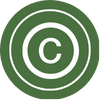
What role copyrights play for your products
Although hardly realized in public, manufacturers, importers and online vendors of IT/CE devices and storage media are subject to paying copyright levies on the basis of the European directive 2001/29/EG. In contrast to other product-related compliance legislations, CL rules show vivid dynamics and numerous changes in the many countries where they have been implemented. Reasons are ongoing tariff-negotiations, pending law suits and technological changes with impacts on functions and tariffs. Our services yield an overview of the diverse legal situations within the European Union and beyond. We analyze your situation individually and offer a far-reaching takeover of your compliance efforts.
Are you liable to pay tax? Check your obligations now with our free self-testWith regard to CL obligations we offer services for
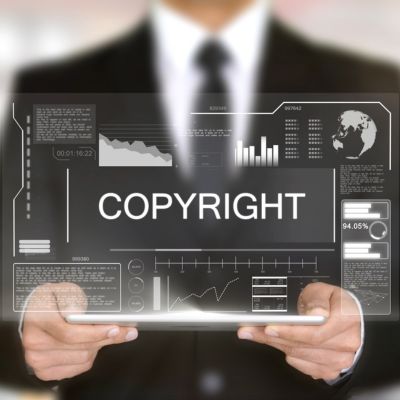
- Information on all aspects of the topic, identification of your individual obligations and options within sales or distribution channels
- Regulatory monitoring and alert services on legislative changes, tariffs, industry agreements, law suits
- Rate Card with all applicable tariffs and tariff calculations for all products and all countries, continuously updated
- Portfolio Check in order to identify product categories and applicable tariffs
- Registration, handling of transaction services, data management, regular (POM) reporting, product mapping, check of invoices and payment, conclusion of contract, communication with authorities
Are you prepared to fulfil your obligations as a manufacturer or first distributor?
Contact us for an individual consultation or visit our blog, to find out more about the latest developments and solutions in the field of copyright levies.
Contact us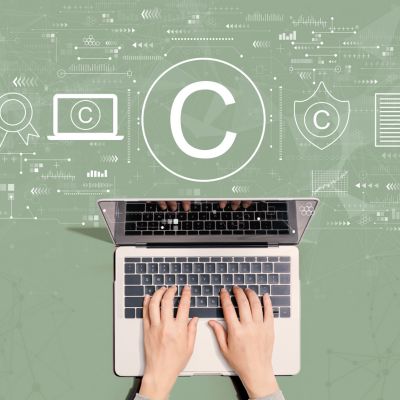
By Alisa Maier
On 08, Jan 2014 | In Product related Services | By Alisa Maier
REACH
REACH 
How to manage qualities and risks of chemicals
The EU REACH Regulation of 2006 intends to protect human health and the environment from the risks associated with the manufacturing, use and disposal of chemicals. REACH applies to all chemical substances from consumer to industrial usage and includes chemicals used in numerous industries like IT, automotive, and manufacturing. As a consequence, the regulation impacts the majority of companies across the EU. Through adequate control of chemicals throughout their complete life-cycle, REACH aims to mitigate the risks associated with their use.
1cc services to SCIP1cc offers services for
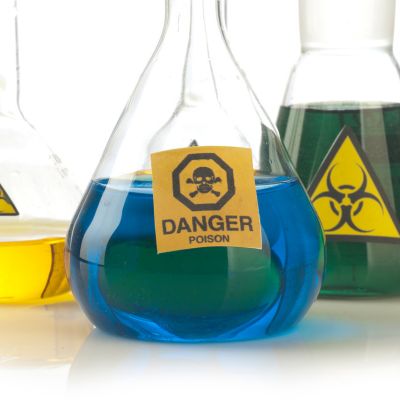
- Identification of a company’s product scope and product compliance process including an audit of your in-house due diligence processes
- Translation of the requirements set by the Regulation to the customer-specific product portfolio
- Gap analysis including evaluation of the actual analysis on the customer side
- Setup of a procedure for company due diligence process, risk management of your suppliers, of materials, components and systems
- Support in the supply chain communication obligation (Article 33), including data collection on behalf of customer
- Expertise and support in identifying articles including SVHC calculation
- Consultancy on demand
- Legal monitoring
In cooperation with our trusted partner ChemLogis, we also offer services for
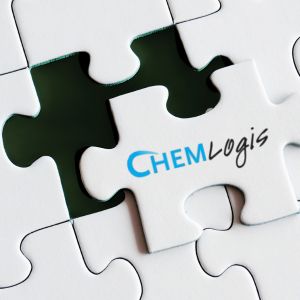
- Preparation and submission of CL notifications as mandated by CLP regulation, including labelling requirements
- Comprehensive guidance through the REACH registration process, including third-party representation, joint registration coordination, and communication with ECHA and relevant authorities
- Preparation, submission, and maintenance of registration dossiers, utilizing software like IUCLID for archiving and updating
- Creation and preparation of safety data sheets in compliance with REACH regulations, with ongoing SDS management including updates
- Conducting qualitative chemical analysis and screening for both organic and inorganic substances
- Cost-effective translation of EU REACH registration data for compliance in other jurisdictions, such as REACH China, KKDIK (Turkey), and UK REACH
- Analysis and evaluation of study endpoints and results to assess chemical risks and hazards, with preparation of chemical safety reports (CSR), monitoring their scientific validity, and updating as needed
- Identification and evaluation of safe-use instructions for chemicals and products as part of registration dossiers
- Examination of technical hazard scenarios and risk evaluation as required within registration dossiers
Are you prepared to fulfil your obligations as a manufacturer or first distributor?
Contact us for an individual consultation or visit our blog, to find out more about the latest developments and solutions in REACH compliance.
Contact us
By Alisa Maier
On 08, Jan 2014 | In Product related Services | By Alisa Maier
RoHS
RoHS 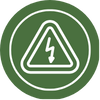
What must not be used in electrical and electronic devices any more
The RoHS (Restriction of Hazardous Substances) Directive if the EU bans hazardous substances from use in electrical and electronic devices. In its recent version – RoHS 2011/65/EU – and pursuant amendments a range of metals and their compounds are subject to substance bans (cadmium, lead, mercury, hexavalent chromium), flame retardants (polybrominated biphenyls (PBB), polybrominated diphenyl ethers (PBDE)), since July 2019 also the softening agents di(2-ethylhexyl)phthalate (DEHP), butyl benzyl phthalate (BBP), dibutyl phthalate (DBP) and diisobutyl phthalate (DIBP). With a few exemptions, all of these substances must no longer be used in electrical and electronic devices sold in the EU. Meanwhile, similar laws have been passed in many industry countries.
Services for CE conformity on requestWith regard to RoHS, we offer services for
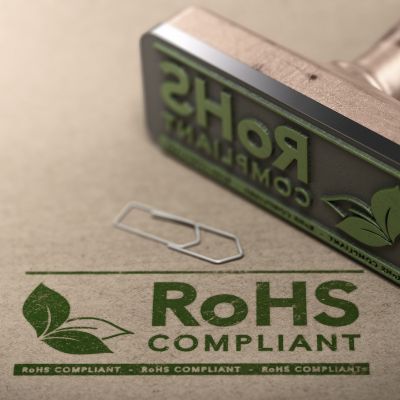
- Evaluating your individual obligations as a producer or seller of EEE
- Identification of obligations with regard to your product portfolio
- Identification and monitoring of current exemption phases
- Establishing a process for risk management of your suppliers, materials, components and systems according to IEC63000
- Support with the implementation of a risk analysis in cooperation with your supply chain
- Auditing your internal RoHS-processes
Are you prepared to fulfil your obligations as a manufacturer or first distributor?
Contact us for an individual consultation or visit our blog, to find out more about the latest developments and solutions in the area of RoHS compliance.
Contact us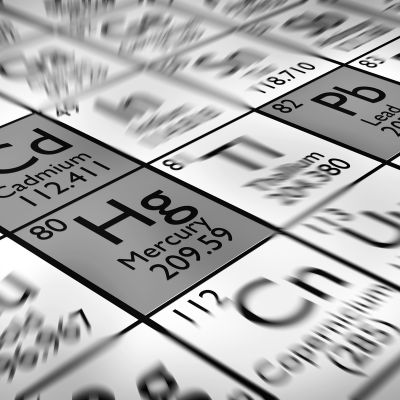
By Alisa Maier
On 08, Jan 2014 | In Product related Services | By Alisa Maier
Ecodesign
Ecodesign 
Focus on sustainable products
Questions of saving resources and CO2-emissions are moving closer into the focus of product design and consumer preferences, aiming at a higher awareness of sustainability and circular economy. With respect to electronic and IT devices, legislations no longer focus on energy efficiency only. Substance restrictions, availability of software and spare parts as well as information on repair maintenance play an ever more important role. The legal framework has been in place for a long time: in form of Directive 2009/125/EG as well as Regulation (EU) 2017/1369 for labelling energy consumption. By passing the Circular Economy Action Plan 2020, the EU Commission has strengthened her demand for more sustainable electronic and IT devices. Meanwhile, in many countries outside the EU legal rules have been established, often using EU laws as their basis of legislation.
With regard to eco-design, we offer you services for
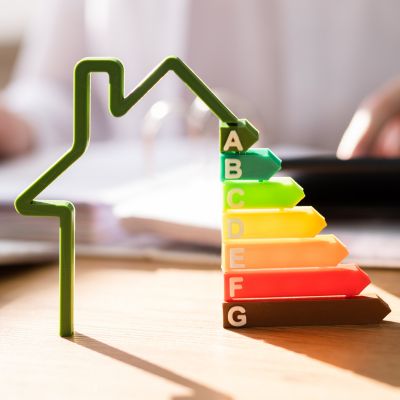
- Monitoring of developments in product design: environmental and energy labels, recyclability, reparability, and availability of spare products
- Assessment of field of application and individual concern
- Link to test-laboratories
- Support with draft of statements of conformity
- Assessment of relevancy of local demands for eco-design and labelling
Are you prepared to fulfil your obligations as a manufacturer or first distributor?
Contact us for an individual consultation or visit our blog, to find out more about the latest developments and solutions in the area of ecodesign.
Contact us
By Alisa Maier
On 08, Jan 2014 | In Product related Services | By Alisa Maier
Conflict minerals
Conflict minerals 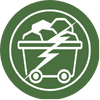
More than environmental challenges: politics and crime
The Conflict Mineral legal frameworks is intended to support the international efforts to reduce trading in minerals sourced from conflict areas (called ‘conflict minerals’). It primarily requires companies that buy products containing Tin, Tungsten, Tantalum or Gold (often called as 3TG) to report on the procurement source of these minerals. In 2010, the US Congress passed the ‘Dodd-Frank Act’, with rules requiring SEC listed companies to disclose whether they use conflict minerals in their products. They need to declare this by determining whether any level in their supply chain utilized minerals which originated in the Democratic Republic of the Congo (DRC) and the adjoining countries. Additionally, starting January 2021, a new law applies across the EU – the ‘Conflict Minerals Regulation (EU) 2017/821’, to check if the imports into EU are from a responsible supply chain of minerals and not from conflict-affected and high-risk areas.
With regard to compliance with conflict minerals legal frameworks we offer services for

- Consulting and advisory services
- Regulatory trainings, workshops and webinars
- Suppliers’ evaluation and risk assessment
- Supply chain management and collection of CMRTs from suppliers
- Creating of a company’s own CMRT based on the suppliers’ feedback
- Evaluation and development of a company’s compliance due diligence policy and process including risk analysis
- Legal monitoring
Are you prepared to fulfil your obligations as a manufacturer or first distributor?
Contact us for an individual consultation or visit our blog, to find out more about the latest developments and solutions in the field of conflict minerals compliance.
Contact us

